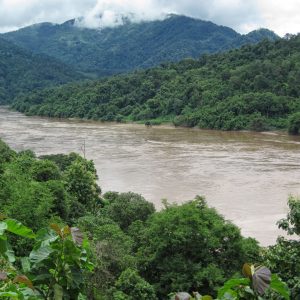The Stream, November 9: Dakota Access Pipeline Still A Go
The Global Rundown
The controversial Dakota Access oil pipeline, opposed over concerns about its effect on water quality and sacred sites in North Dakota, will still proceed, according to the company building the line. The last five years have been the hottest on record globally, the World Meteorological Organization said. Water quality has improved at England’s beaches. Meanwhile, soldiers in the United Kingdom are on standby to respond to floods this winter. Floods in Albania killed three people this week.
“We just had the hottest five-year period on record, with 2015 claiming the title of hottest individual year. Even that record is likely to be beaten in 2016.” –Petteri Taalas, secretary-general of the World Meteorological Organization, emphasizing that climate change and its effects are already occurring around the world. (Bloomberg)
By The Numbers
1,200 soldiers Number that Theresa May, the United Kingdom’s prime minster, has put on standby to respond to possible winter floods in England this year. Guardian
3 people Number killed by floods in Albania, where strong rainstorms affected businesses, schools, and transportation networks. Reuters
Science, Studies, And Reports
Water quality at more than two-thirds of the beaches in England is rated “excellent,” according to data from the Environment Agency. The agency said the positive results reflect a combination of dry weather in 2016 and stricter regulations under the European Union. Guardian
On The Radar
The company behind the Dakota Access oil pipeline indicated this week that it will continue with preparations to complete the line, despite strong opposition from Native American and environmental groups. The pipeline still must cross under Lake Oahe in North Dakota, where opponents are concerned a future rupture could contaminate water supplies. Reuters
A news correspondent for Circle of Blue based out of Hawaii. She writes The Stream, Circle of Blue’s daily digest of international water news trends. Her interests include food security, ecology and the Great Lakes.
Contact Codi Kozacek




